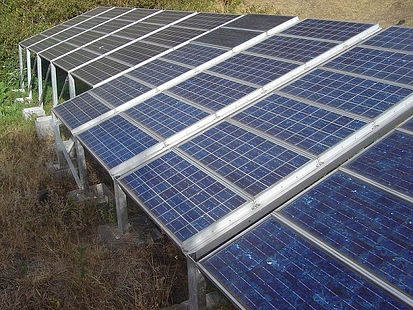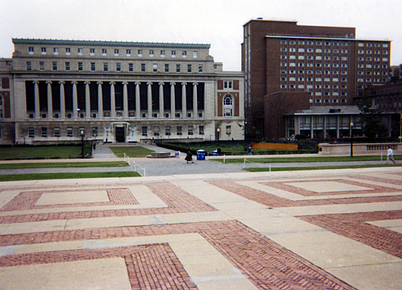In the beginning of August, we published an article about Mayor Michael Bloomberg’s plan to encourage 27 interested universities to come up with innovative ideas for high-tech campuses and compete for space in one of three areas in New York City. While Manhattan local news website DNAinfo.com reports that at an unrelated press conference, Mayor Bloomberg said he is not rejecting the idea that more than one school may win the competition, he also said that up to $100 million in public funding for the project is on the line, so the city will probably work with just one school to begin with.
The October 28 deadline for schools to submit their proposals passed at the end of last month, and it's looking like two schools from New York, Cornell University and Columbia University, are among the top three most likely winners. Now that the proposals are in, followers of this exciting competition can see a clearer picture of how each of these two powerhouse schools envisions the future of technology in New York. For each school, we’ve put together a short profile of the technology they hope to use if they win the promised space and funding.
Cornell University
One of the new technology elements Cornell aims to focus on if they win the competition is green energy. A recent article on Earth Techling highlights how Cornell proposes to use solar panels and geothermal heating and cooling, along with passive solar orientation, to make the campus greener. The main academic building would achieve net zero energy usage by harnessing and using as much energy from the rest of the campus as the building consumes. The proposed 150,000-square-foot building would be the largest net zero energy building in the eastern United States and among the top four largest in the country. Its designers are aiming for LEED Platinum certification. The plans for the rest of the Cornell Roosevelt Island Campus include on-site storm water treatment and space for community gardens.

(Image courtesy of Wikimedia)
Columbia University
While Cornell and Stanford University are focusing heavily on green technology, Columbia’s proposal highlights a broad spectrum of new media, smart cities, health analytics, cyber security and financial analytics. In a statement to the press, Columbia University President Lee C. Bollinger said: “Experience shows that engineering and applied science thrives as part of a multidisciplinary university community that includes everything from cutting-edge research in the basic sciences and humanities to the entrepreneurship of a business school,” He also commented, “That kind of dynamic intellectual mix that defines not just Columbia, but the genius of New York itself.” So while green energy may be part of the solution to better technology, Columbia’s plans for the future encompass many different creative ways of thinking and the idea that we cannot rely on one discipline alone.

(Image courtesy of Wikimedia)
Mayor Bloomberg and the city of New York are still in the process of reviewing proposals, but The Huffington Post reported in October that how much funding each school is asking for will play a major role in who wins the competition. With up to $100 million to work with, each school has doubtlessly made sure that their plans keep an eye towards investment in the future.


Biotechnology Calendar, Inc. is an events marketing company producing on-campus science research tradeshows at universities nationwide. If you are a life science researcher, purchasing agent or lab manager looking to connect with others in your field from New York, Biotechnology Calendar, Inc. invites you to attend one of our 2012 tradeshows.

